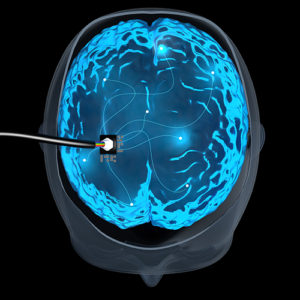May 10, 2017
 In a new, ongoing trial, deep-brain stimulation – more commonly used for Parkinson’s patients – is being tested on stroke survivors. Physicians are hoping that the end result of the deep-brain stimulation treatment – which involves implanting an electrode to stimulate a certain portion of the brain – will restore mobility in stroke patients and put an end to the paralysis that so many often experience after a stroke, making the future of home care for stroke patients look much brighter!
In a new, ongoing trial, deep-brain stimulation – more commonly used for Parkinson’s patients – is being tested on stroke survivors. Physicians are hoping that the end result of the deep-brain stimulation treatment – which involves implanting an electrode to stimulate a certain portion of the brain – will restore mobility in stroke patients and put an end to the paralysis that so many often experience after a stroke, making the future of home care for stroke patients look much brighter!
In order to comprehend how a stroke hinders normal brain activity, Laurie Ann Bonkoski, a speech therapist, compares a stroke to a home whose front door has unexpectedly become obstructed by a fallen tree. In her studies, she’s determined to sidestep that obstruction and access some other pathways to help bring back as much functionality to the patient as possible.
To operate together with therapy to create new neural pathways, Dr. Andre Machado of the Cleveland Clinic implanted the first deep-brain stimulating electrode into a stroke patient as the initial step in this clinical human trial. The next step will be to switch it on, transmitting the electrical impulses that he hopes will encourage brain growth. Based on the results of this trial, various other conditions are in line for similar tests. University Hospital neurosurgeon Jennifer Sweet shares, “People are studying the benefit of this for addiction; we know that it can be effective in obsessive compulsive disorder, it’s been used to treat Tourette’s; it may even be an option for anorexia or obesity or hypertension.”
Continuum, providing assisted home care in St. Louis and the surrounding area, will be keeping an eye on the progress in this study. Meanwhile, if you have a family member who’s suffered a stroke, call us at (314) 863-9912 or (636) 861-3336 for in-home care assistance to make improvements to his or her quality of life. We are able to assist in the following ways:
- Planning and preparing nourishing meals in accordance with any prescribed dietary plan
- Helping with light housekeeping and laundry
- Performing a safety evaluation of the home to decrease fall risks
- Providing escorted transport to health care appointments or other outings
- Picking up medications and running errands
- And much, much more
